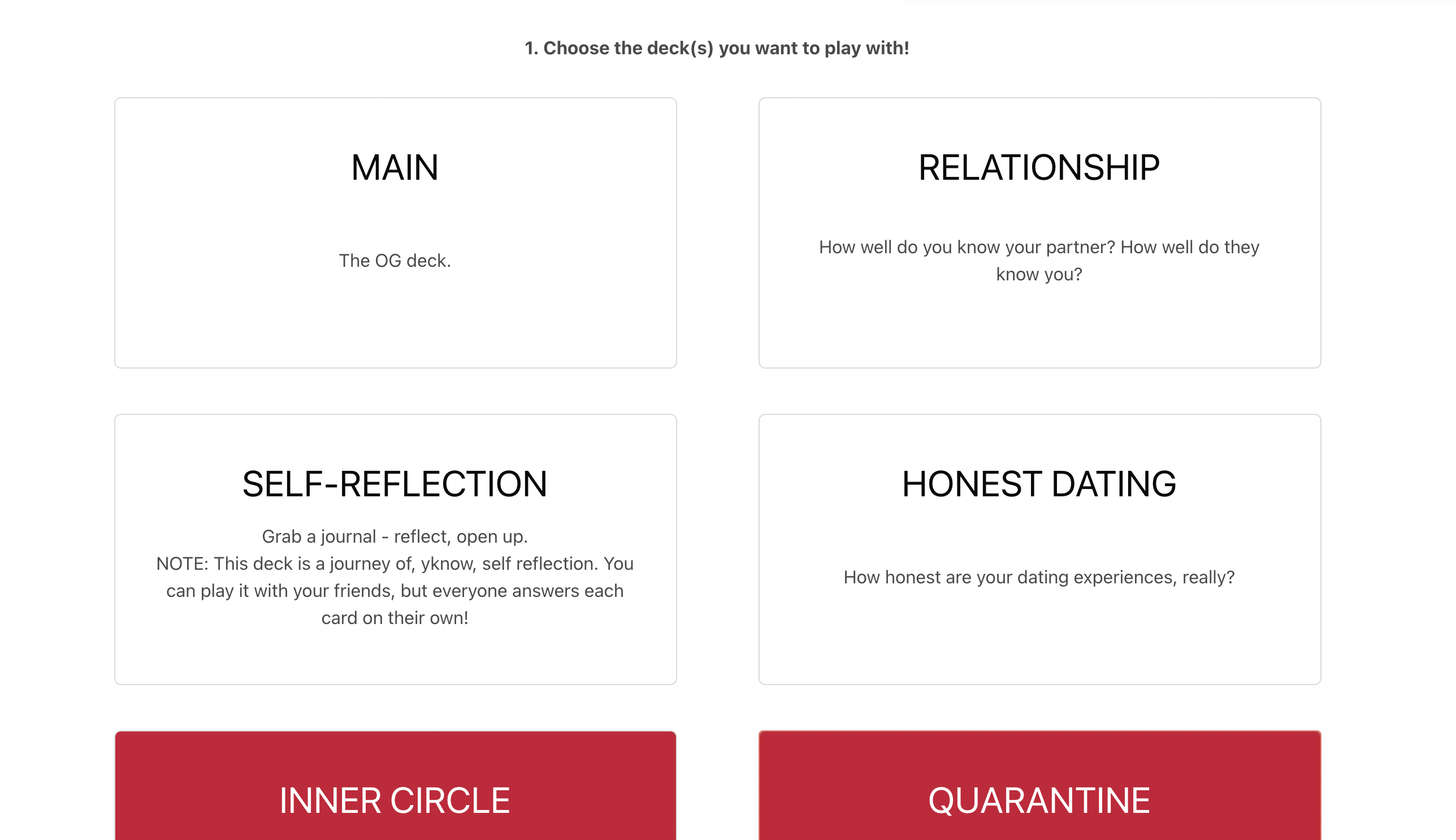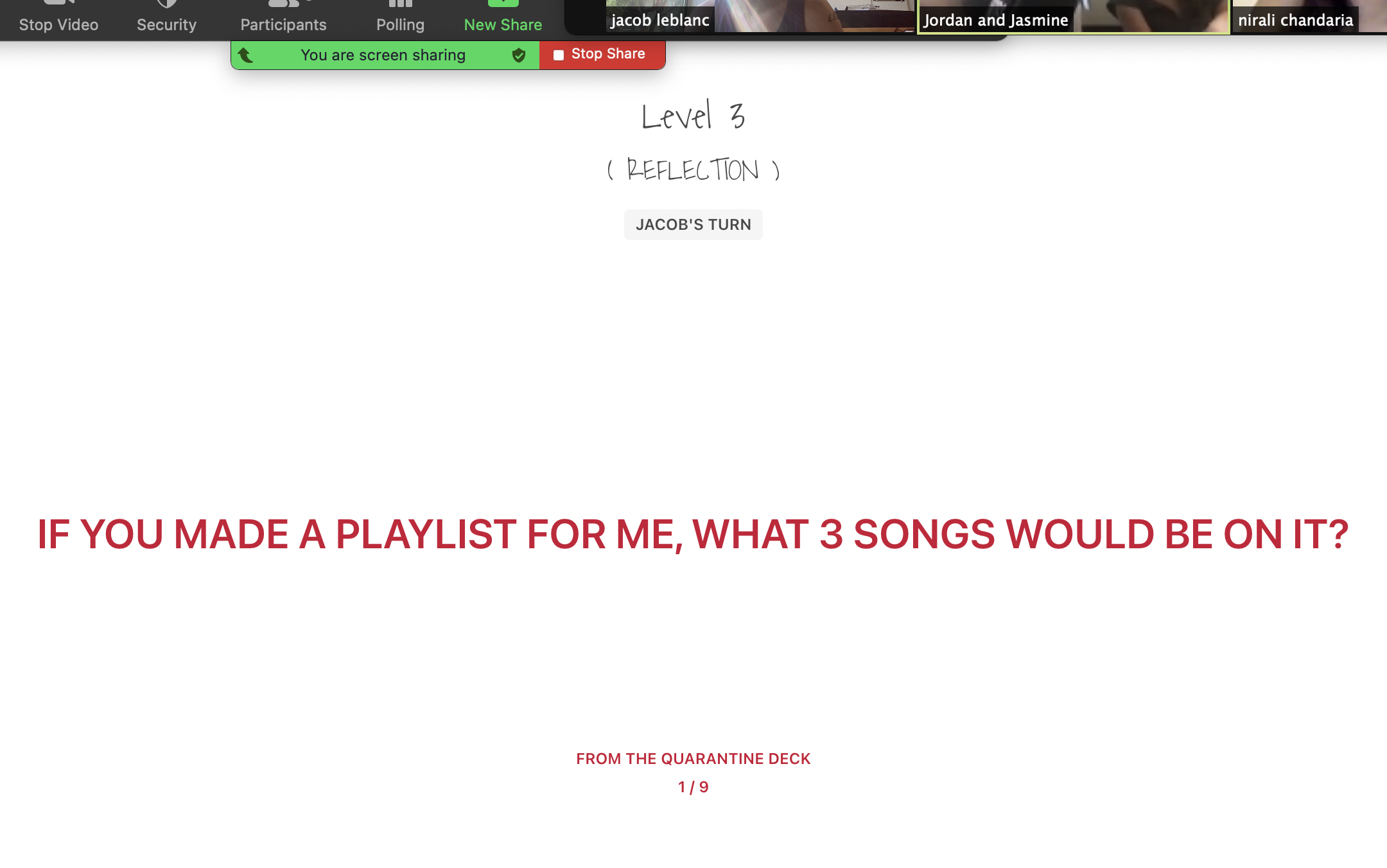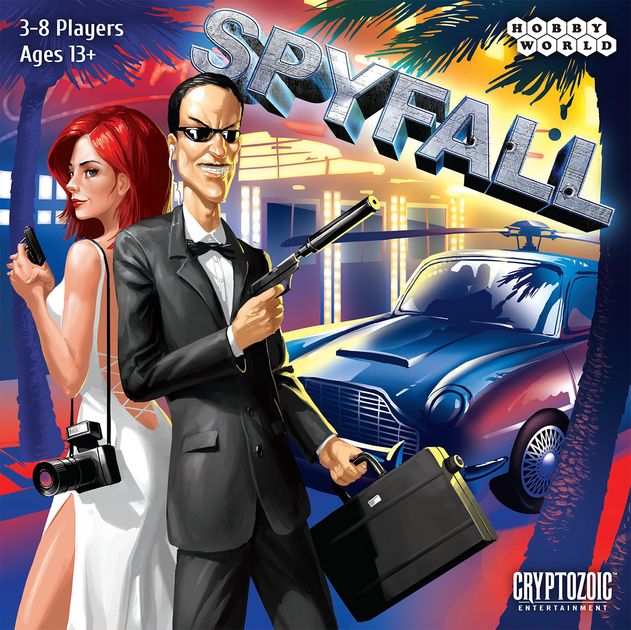Intro
After we played that snippet in class, I had become interested in playing We’re Not Really Strangers in a fuller setting, so this was the perfect opportunity for me to get a chance to play. A few friends and I decided to play the online version (https://werenotreallystrangers.online/), which has you first pick what decks you want to use and then gets into the actual gameplay. Since I was playing with some closer friends, we decided to use the Inner Circle and Quarantine decks.
The game then moves on to the three levels, and we played about 8 cards from each level to get a feel for them all without taking all day since each card seemed to spark a new conversation.
Formal Elements
-
Players – This is a multiplayer game (2-6) where each player interacts with others by answering questions about them. I think it could best be described as a co-op game. Since very little happens outside of the players, they end up playing a huge role in the game, allowing it to be fun or not in my opinion.
-
Objectives – The objective of this game is very simply to get to know other people and learn more about yourself.
-
Outcomes – This is a non zero-sum game; there are no winners or losers.
-
Procedure – After choosing players and decks, players take turns asking the other players questions based on the card they are given. After each player answers, it is the next person’s turn. At any point, you may choose to switch levels, and I have included examples from each level below.



-
Rules – Answer honestly. Some questions have time limits.
-
Boundaries – The “magic circle” of this game doesn’t actually seem to have an ending. The questions that are asked during the game could be targeted at any part of a person’s life, so the game itself extends there.
-
Conflict – There is no real conflict in this game (unless one of the questions brings up some stuff with a friend ://///).
-
Resources – The only resources are the cards and time during certain cards.
Fun
This game utilizes Expression and Fellowship to create its fun. Specifically, its handling of boundary and players helps to create this fun since the game can go anywhere in one’s life and it is up to the players to be true to themselves and listen well to each other. I think it works well in this case because it becomes a low pressure environment for people to really just talk and listen to each other under the guise of a game.
Improvements
- For the online version, the instructions are really unclear, and the cards are not always from the same perspective, so it can get kind of confusing.
- I actually think that the WildCard aspect of the game removes from it. Especially when playing with my closer friends, we found that we enjoyed the regular question cards much more.



